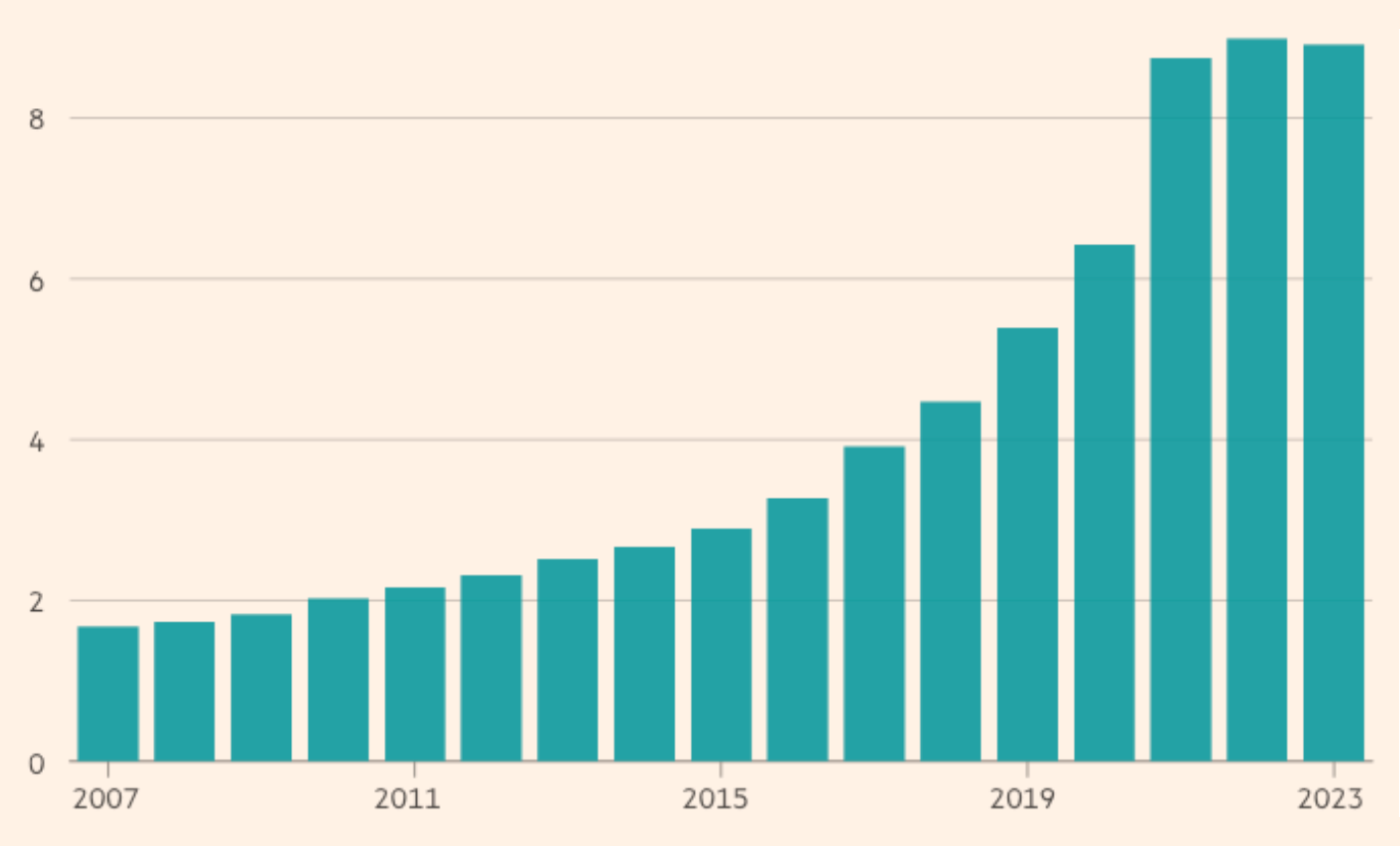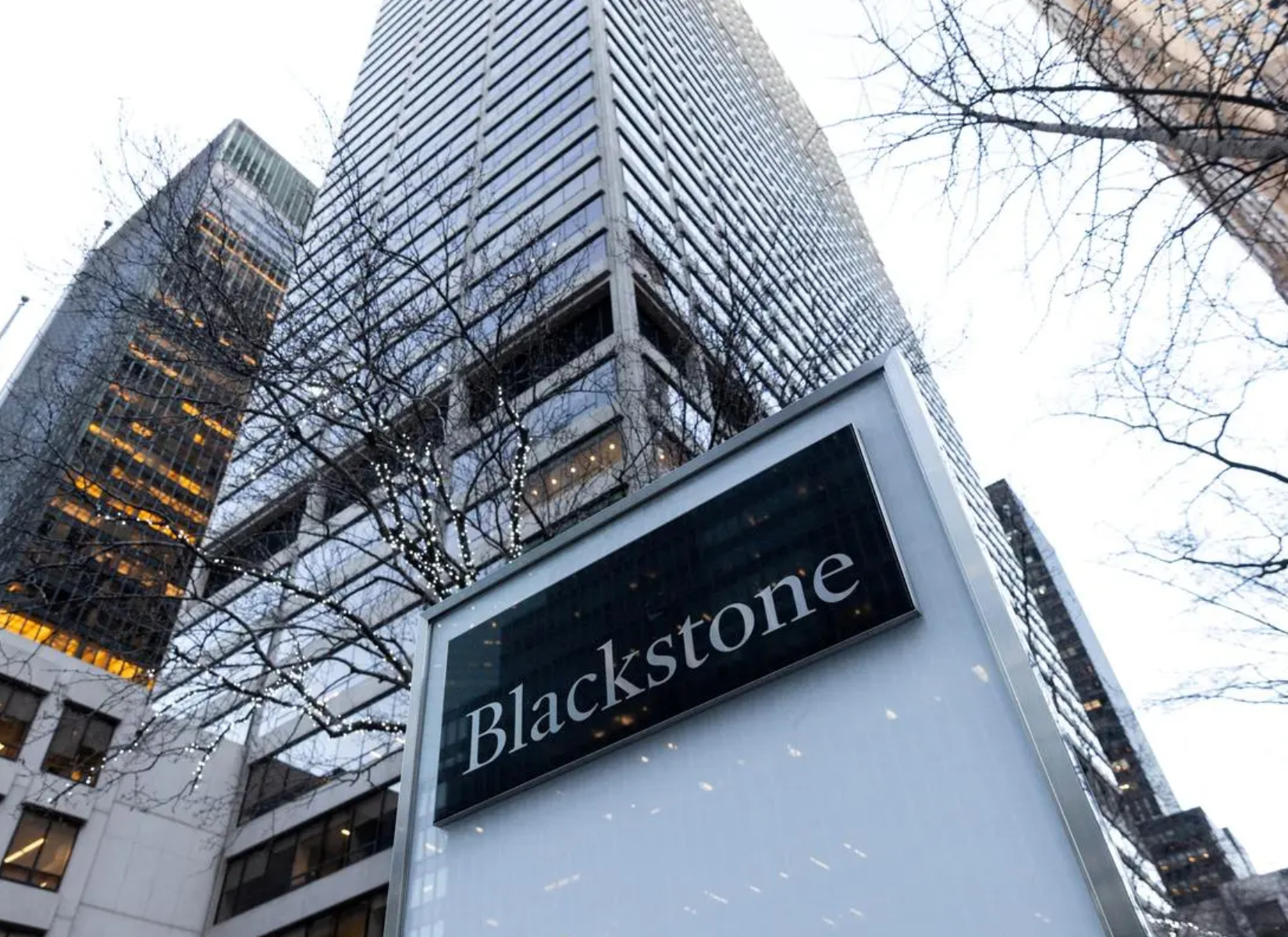Private equity firms have become an integral part of the global economy, owning everything from family homes to supermarkets and cosmetics companies — even hospitals.
Assets controlled by groups such as Blackstone, Apollo Global Management, and Carlyle Group have quadrupled since 2012 (as can be seen in Figure 1). Therefore, how are all of these operations financed?
First, let us explain what private equity is. Private equity refers to investment firms that acquire, manage, and eventually sell companies for profit. These firms include institutional investors such as pension funds, insurance companies, and sovereign wealth funds, as well as large private equity firms funded by accredited investors. Rather than holding stakes in publicly listed companies, private equity firms typically acquire companies outright — either private or public — often taking ownership of more than 50%. Such acquisitions are known as buyouts, which are frequently leveraged to maximize returns (Investopedia, 2024).

A leveraged buyout (LBO) is the acquisition of one company by another using a significant amount of borrowed money to meet the cost of acquisition. The assets of the company being acquired are often used as collateral for the loans, along with the assets of the acquiring company. In a typical LBO, approximately 70%–80% of the financing is debt, while 20%–30% comes from equity provided by the private equity investors. This high leverage allows the private equity firm to control the company with a relatively low initial investment, while the target company’s assets are used as collateral, and its cash flows are relied upon for debt repayment.
Key players in an LBO include the private equity firm leading the acquisition, investment banks and financial institutions providing layered debt financing, and the target company, which takes on the debt and uses its cash flows for repayments. The management team usually stays, motivated by equity stakes, while financial and legal advisers ensure due diligence and proper structuring of the deal.
But why do private equity firms use such substantial leverage in these acquisitions? Simply put, the use of leverage enhances the expected returns on equity. By investing as little of their own money as possible, private equity firms can achieve significant returns, assuming the business performs well. Leverage magnifies equity returns, but it also heightens risk—a core principle in finance where greater potential returns come with greater potential risk. If cash flows weaken or economic conditions deteriorate, the company may face restructuring or bankruptcy. Therefore, the ideal LBO candidates are mature, stable companies with predictable cash flows, high margins, and relatively low capital expenditures—qualities that ensure the debt can be serviced sustainably.
Consider the Blackstone acquisition of Hilton Hotels in 2007, a quintessential example of a leveraged buyout. Blackstone acquired Hilton for $26 billion, with approximately $20 billion financed through debt—demonstrating the classic LBO structure with a high level of leverage. Soon after the acquisition, the global financial crisis hit, significantly impacting the hospitality industry. Despite the downturn, Blackstone implemented strategic changes to improve Hilton’s operations, focusing on expanding the brand globally and enhancing efficiency across its portfolio. By 2013, Hilton's performance had rebounded strongly, allowing Blackstone to take the company public in one of the most successful IPOs of that time. Ultimately, Blackstone turned its $5.6 billion equity investment into $14 billion in profit, showcasing how a well-executed LBO, combined with effective management, can generate substantial value even in challenging market conditions.








References
- Leveraged Buyout (LBO) (2024), Corporate Finance Institute. Available at: https://corporatefinanceinstitute.com/resources/valuation/leveraged-buyout-lbo/
- Leveraged Buyout (LBO): Definition, How It Works, and Examples (2024), Investopedia. Available at: https://www.investopedia.com/terms/l/leveragedbuyout.asp
- Private Equity Explained With Examples and Ways to Invest (2024), Investopedia. Available at: https://www.investopedia.com/terms/p/privateequity.asp
- Understanding Private Equity (PE) (2024), Investopedia. Available at: https://www.investopedia.com/articles/financial-careers/09/private-equity.asp
- What Is a Buyout, With Types and Examples (2024), Investopedia. Available at: https://www.investopedia.com/terms/b/buyout.asp




